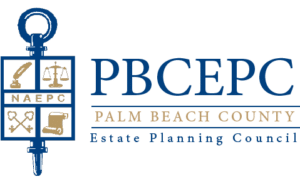
Overview. Tax-free compounding can be amazing, especially when (1) tax-favored Grantor Trusts use (2) tax-favored split-dollar loans to fund (3) tax-free life insurance. This article discusses how the following results could occur at life expectancy with a $1,000,000 income tax-free loan by a parent for the benefit of an adult child:
- $8,000,000 tax-free with a 6.0% crediting rate.
- $12,000,000 tax-free with a 7.2% crediting rate.
- $16,000,000 tax-free with an 8.0% crediting rate.
We used a math concept known as the “Rule of 72” to illustrate a hypothetical split-dollar loan arrangement. It does not require a calculator unless you want to confirm that the “Rule of 72”, described below, is useful for estimating future values.
Grantor Trusts. Since 1985, attorneys have been drafting estate tax-free trusts with special provisions that allow their clients, the grantors, to make loans to their trusts at non-taxable loan interest rates. Recommendation: consult your attorney or tax advisor to confirm the law has not changed regarding Grantor Trusts.
Split-Dollar Loans. Since 2003, split-dollar loan arrangements have been governed by final Treasury Regulation Sec. 1.7875-15. The regulations allow the loan interest to accrue at a fixed rate for the life of the insured. In this example, a $1,000,000 split-dollar loan accrues interest at 2% annually and will be non-taxable throughout the life of the grantor. Note: when this article was written, the fixed non-taxable loan rate was less than 2%.
Permanent Life Insurance. When $1,000,000 is paid into a life insurance policy with multiple investment options, the Trustee can invest in selected equity accounts, including managed accounts and index accounts. The equity in the policy will grow income tax-free as life insurance cash value. The increasing cash value funds the tax-free insurance death benefit. The proceeds will be income tax-free because they are payable as life insurance. They will be estate tax free because the insurance is owned by a Grantor Trust.
The Rule of 72. The “Rule of 72” is a simplified formula to estimate how long an investment will take to double based on the selected fixed rate of interest. For example, with a 2% rate, it will take 36 years for $1,000,000 to double to $2,000,000 (72 divided by 2 = 36). With a 6% rate, $1,000,000 will double every 12 years (72 divided by 6 = 12). $1,000,000 grows to $2,000,000 in 12 years; to $4,000,000 after 24 years; and to $8,000,000 after 36 years.
The Case Study Example. The grantor’s child is assumed to be an adult with a 36-year life expectancy. The parent creates a Grantor Trust for the benefit of the child and his/her descendants. The parent makes a $1,000,000 Grantor Loan to the Trust. The Trustee uses the loan to fund the insurance policy and agrees to repay the loan with a portion of the death benefit proceeds. Here are the expected split-dollar planning results:
- The Grantor pays zero (-0-) loan interest because it accrues annually.
- The Grantor pays zero (-0-) income tax because this is a Grantor Trust loan.
- With a 2% loan rate, the loan balance will be approximately $2,000,000 in 36 years.
- With a 6% crediting rate, the income tax free and estate tax-free death benefit will be approximately $8,000,000.
- The Split Dollar Loan Agreement requires the Grantor Trust to repay the loan balance when the death benefit is paid.
- $6,000,000 remains in the Grantor Trust to be invested for the benefit of the descendants of the insured.
- The Trust can continue for multiple generations of descendants with zero estate tax and zero Generation Skipping Transfer taxes.
The Rest of the Story. There are many planning options with these plans. For successful results, use qualified, experienced advisors who will work together to accomplish their clients’ goals. This is complicated. Successful results also require efficient policy design and a lifetime of policy management. Select an insurance planner who will under-promise and over-perform when designing, installing, and maintaining your split-dollar life insurance plan.
Marshall Jones is a Principal of Jones Lowry, an M Financial planning firm specializing in the analysis, design, implementation, and administration of life insurance portfolios for ultra-high net worth families. Marshall is a non-praciticing member of the Florida Bar, Accredited Estate Planner, Chartered Advisor for Philanthropy, Chartered Financial Consultant, and Chartered Life Underwriter. File#3783977.1
